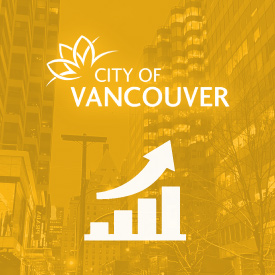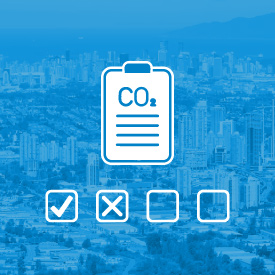BOMA BC Advocacy Update: First Half 2024
At the municipal, provincial, and federal levels, policies and regulations can affect our industry. BOMA BC regularly works with policymakers and Government officials to ensure the best outcomes for our members and the commercial real estate industry as a whole.
There are several ongoing consultations, policies and regulatory changes BOMA BC is following closely.
Here is an update on some key highlights from the first half of 2024, and a summary of BOMA BC’s advocacy work to date.
If you have any questions, or if there is a topic you think is important to the commercial real estate industry, please get in touch with our Government Relations Director, Zach Segal, at zsegal[at]boma.bc.ca.
Important Legislative Highlights 2024:

1. BC’s Highest Efficiency Equipment Standards
The Province is consulting on a policy to implement the Highest Efficiency Equipment Standards for space and water heating equipment. By 2030, all new space and water heating equipment in BC will have to be at least 100% efficient. BOMA BC noted barriers to installing new equipment (that is not like-for-like), which include electrical upgrades, retrofitting, permitting and new costs.

2. Federal 30% Clean Technology Investment Tax Credit
As part of Budget 2024, the Federal Government will launch a Clean Technology Investment Tax Credit. A 30% tax credit for equipment used in generating clean energy, such as air or ground source heat pumps. This is currently before Parliament in Bill C-59 and will likely receive Royal Assent before July 2024.
Learn More >

3. BC Hydro Net Metering
BC Hydro is conducting consultations to improve its net-metering program, in which BC Hydro customers can connect renewable electricity generating units to their buildings and deliver power back to the grid. There has been a historically very low commercial uptake. BC Hydro is exploring a solution to allow customers to build a solar unit larger than the cap of 100kW but still caps the amount of power sent back to the grid at 10kW.
Learn More >

4. BC Hydro Extension Policy
New BC Hydro customers, or an existing building looking to electrify, may require BC Hydro system upgrades. These can be costly and prohibitive – a long-time advocacy issue. BC Hydro proposes to offset costs and mitigate ratepayer risk for disproportionate system improvement costs and extensions. To mitigate ratepayer risk and address edge scenarios where system improvement costs are extraordinary relative to the load being connected, BC Hydro will invest up to $1M per MVA towards system improvement of new load.
Learn More >

5. City of Vancouver Office Conversions
The City of Vancouver is exploring different policy solutions for empty office space in the downtown core.
City Staff are consulting on options to update change-of-use conditions to allow timely and cost-effective adaptation of existing and underused office space for arts and culture.
City Staff are also reviewing changing the building bylaw to make it easier to convert empty office space to pod hotels.
BOMA BC Advocacy:
City of Vancouver

Property Taxes
Cities across Canada have seen disproportionate property tax increases in the last several years. Toronto saw a 9.5% in 2024, for example. Vancouver has not been immune either.
BOMA BC has actively engaged Vancouver City Council and staff regarding the negative impact of excessive property tax increases, and the need for a Property Tax Shift from Commercial to Residential.
We participated in several rounds of consultations and meetings in the first half of this year with Vancouver City Staff, and advocated for tax relief to support small business. We have also communicated to the Province of BC that they have a large role in the total property tax share through the School Tax.
Following our engagement, We were assured that Vancouver City Staff are reviewing recommendations and strategies to increase revenue and minimize future tax increases. Vancouver City Council recently provided direction to staff to develop the 2025 Operating Budget with a maximum tax increase of 5.5%.

Energize Vancouver – Carbon Pollution Limits and Reporting
June 1st, 2024 was the City of Vancouver’s Carbon Pollution Limits and Reporting Requirements first reporting deadline.
BOMA BC continues to actively engage with the City of Vancouver to ensure a smooth program rollout.
We are also actively engaging with Utilities to ensure they are making reporting as seamless as possible for building owners and managers.
The next deadlines are:
- June 1st, 2024 (Energy data reporting for 2023): Greater than 100,000 sqft.
- June 1st, 2025 (Energy data reporting for 2024): Greater than 50,000 sqft
- June 1st, 2026 (Energy data reporting for 2025): Greater than 50,000 sqft.
- June 1st, 2027 (GHGi Limits for 2026): Greater than 100,000 sqft.
- June 1st, 2041 (GHGi limits for 2040): Greater than 100,000 sqft.
- June 1st, 2041 (Heat energy limits for 2040): Greater than 100,000 sqft.
Learn More >
Metro Vancouver

Carbon Pollution Limits and Reporting
The Metro Vancouver Regional District, the lower mainland’s federation representing 21 municipalities, is struggling to find a way to regulate existing buildings and carbon pollution.
In late 2023, the Metro Vancouver Regional District Board of Directors (MVRDBD) voted down a proposal to regulate carbon pollution limits from existing buildings in the Metro Vancouver Region.
Last month, the MVRBD reviewed an alternative proposal to mandate only carbon pollution reporting in the district, as opposed to carbon pollution limits. The Board deferred a decision, with several councillors opposing any regulation in this space.
This poses a challenge for BOMA BC and its members. Several Municipalities are independently regulating in this space. The City of Richmond and Victoria are exploring implementing carbon reporting requirements, and the City of Vancouver has already passed carbon pollution limits and reporting requirements.
A patchwork of regulations across the Province would be complex and an administrative burden for a building owner or manager with a large portfolio.
As such, BOMA BC is working closely with the Province of BC, Metro Vancouver, and regional partners to ensure regulations are consistent and there is a minimal administrative burden.
Back to top of page >